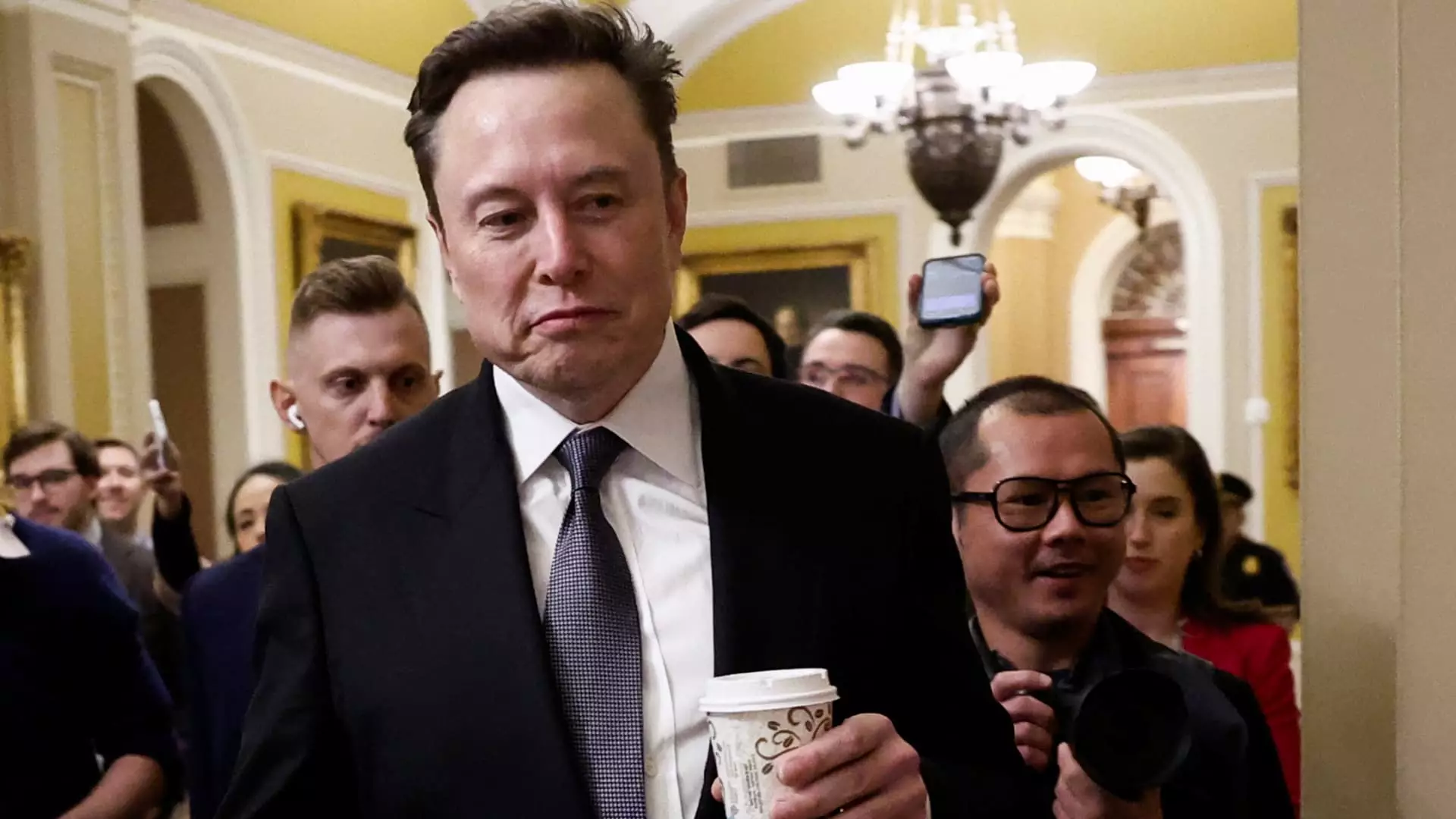Easterly Government Properties is currently facing significant challenges in the wake of the recent U.S. presidential election, leading to a notable drop of 12% in its stock value. Investors are grappling with concerns over the company’s future, especially as the newly established Department of Government Efficiency gears up to implement potential budget cuts. Trading under the ticker symbol DEA, Easterly’s business model heavily relies on government leases, which account for an impressive 98% of its revenue. With the shift in political climate, the fear that these critical leases may face scrutiny has infused a sense of uncertainty into the company’s stock performance.
In recent months, the advisory council aptly dubbed DOGE, helmed by influential figures like Elon Musk and Vivek Ramaswamy, announced an ambitious goal of slashing $500 billion from federal spending. This development presents a double-edged sword for Easterly Government Properties, as the company’s properties cater primarily to government sectors that are seemingly insulated from immediate budget cuts, such as the Department of Drug Enforcement Administration (DEA) and Food and Drug Administration (FDA) facilities.
CEO Darrell Crate expressed frustration over what he perceives as an unjust punishment of the company’s stock, articulating the essential services provided through their properties. With facilities that include state-of-the-art Veterans Affairs medical centers, courthouse offices, and various law enforcement agencies, such as the FBI, Crate argues that his company supports critical government functions that the new administration would be unlikely to undermine.
Despite Crate’s optimism, not all analysts share his positive outlook. John Kim from BMO Capital Markets points out that while Easterly does own crucial leases, the potential for cuts looms large over some segments of their portfolio. This skepticism is echoed by others in the industry. The company currently pays a quarterly dividend of 27 cents per share, a yield that stands at 9%, but analysts like Kim suggest this payout might be a financial strain and have pushed for a reassessment of the dividend strategy. Kim’s sell rating on the stock signifies a cautionary stance, urging a careful reevaluation of fiscal responsibilities.
On a more optimistic note, analyst Jonathan Hughes from Raymond James believes that the concerns surrounding Easterly’s stock may be exaggerated. With six analysts covering the company, a split opinion emerges, indicating a divide in perception about the stock’s potential recovery. That said, the landscape remains fraught with unpredictability.
Crate has been vocal about his support for DOGE, acknowledging the potential benefits of public-private partnerships in fostering efficiency within the federal government. He emphasizes the need for clarity in the company’s mission moving forward, suggesting that aligning more closely with government objectives can bolster their defense against budget cuts.
Musk and Ramaswamy’s vigorous advocacy for DOGE, crystallized in their efforts to engage Congress, lays a foundation for structural reforms that aim to enhance government services while trimming excess spending. Their notable presence on Capitol Hill underscores a concerted effort to position DOGE as a necessary intervention in the face of government inefficiency.
Interestingly, Crate’s familial ties to the previous administration—his brother having served as treasurer for Trump’s campaign—may marginally influence relations with the current policy makers. However, recent market trends indicate that such advantages have not yet translated into stock performance benefits for Easterly, with the stock experiencing further declines.
As Easterly Government Properties navigates the complexities of governmental relations, shifting investor perceptions, and a turbulent economic landscape, the company stands at a crossroads. The challenges ahead require astute strategic maneuvers, clearer messaging, and a forthright approach to investor communication. The path is rocky, but lessons learned and proactive adjustments could provide a way to weather the storm and emerge resilient. The upcoming months will be pivotal in determining whether Easterly can stabilize its shares and regain investor confidence amidst an era of scrutiny and efficiency demands within the government.

